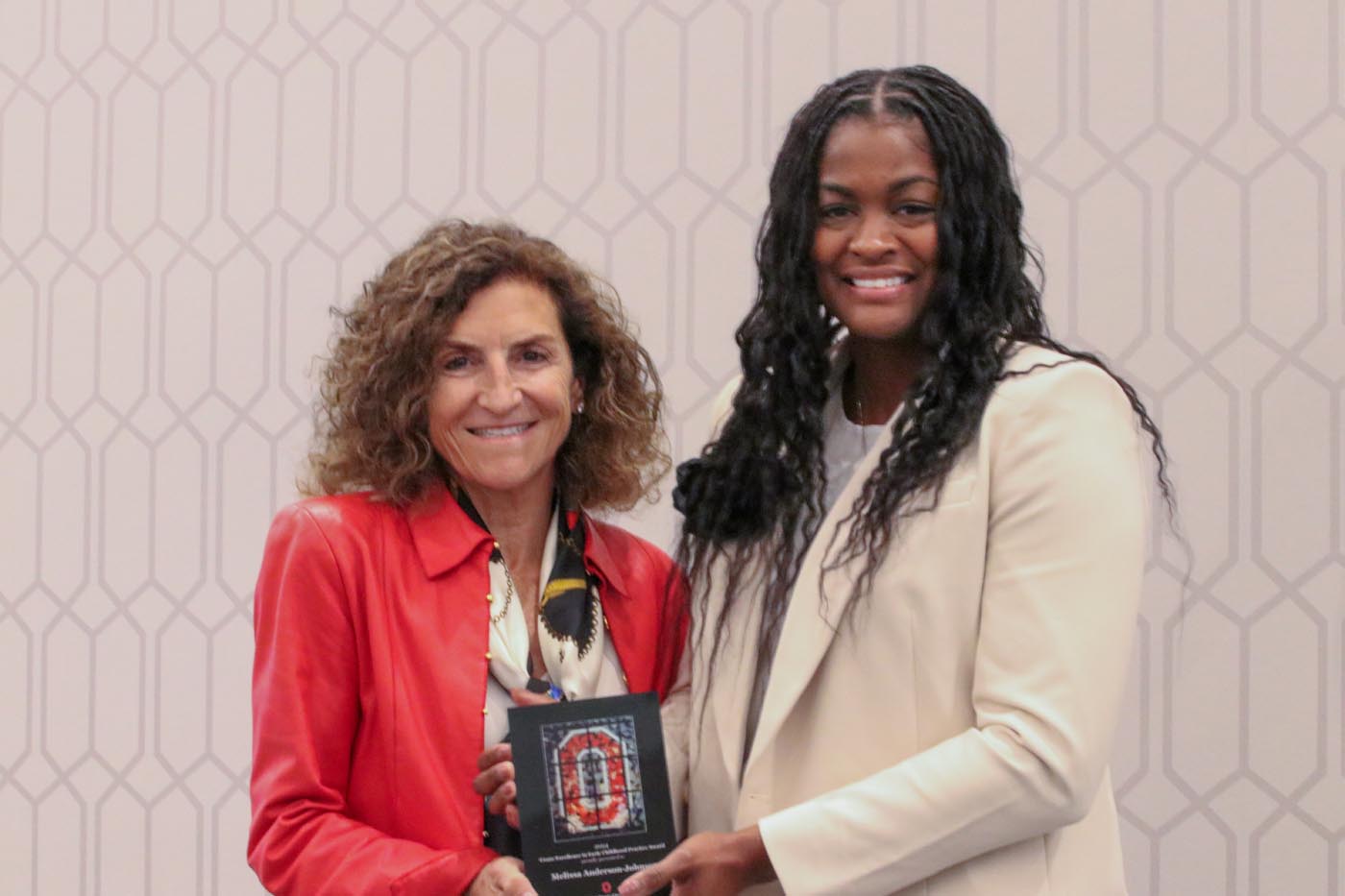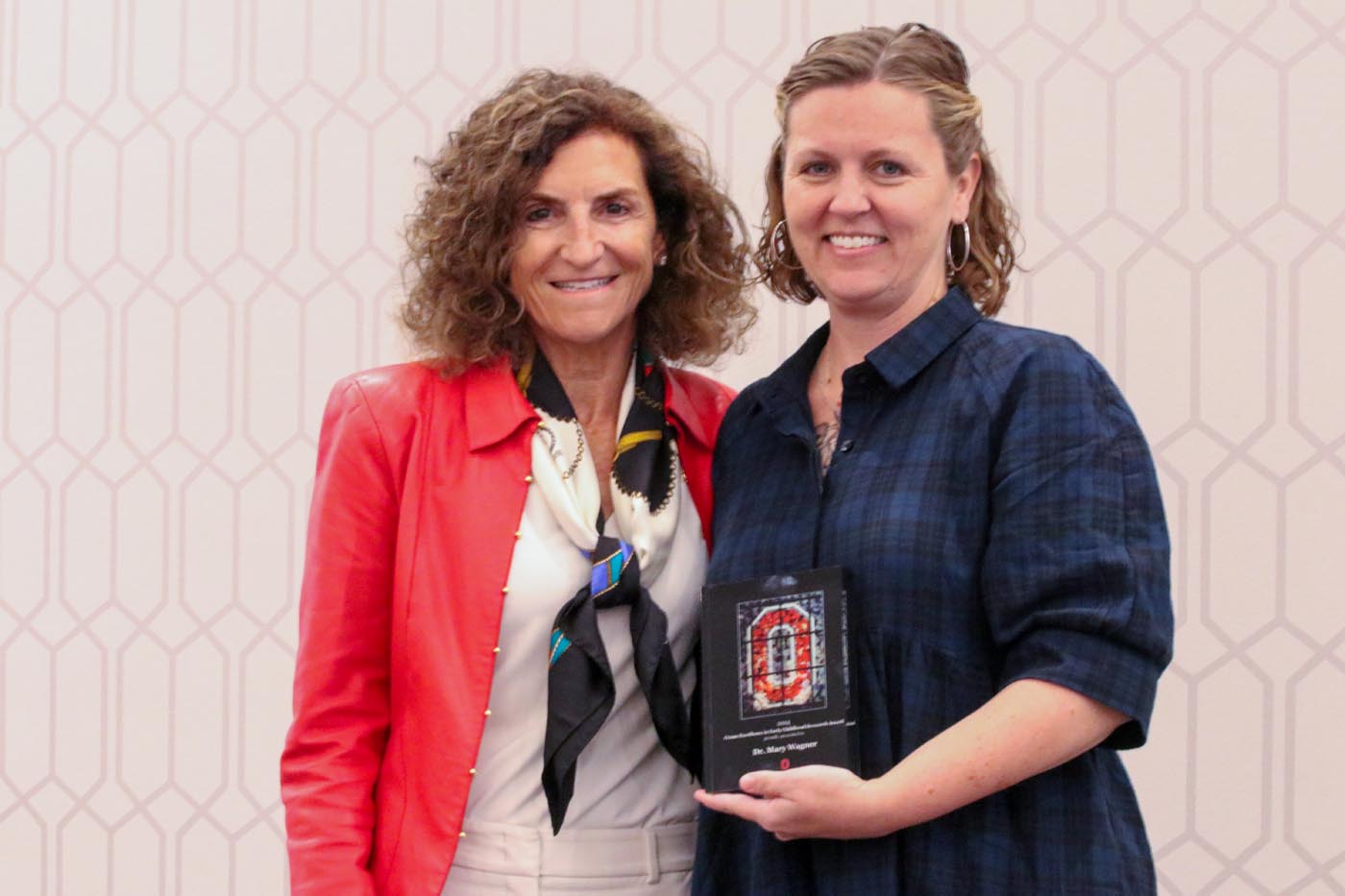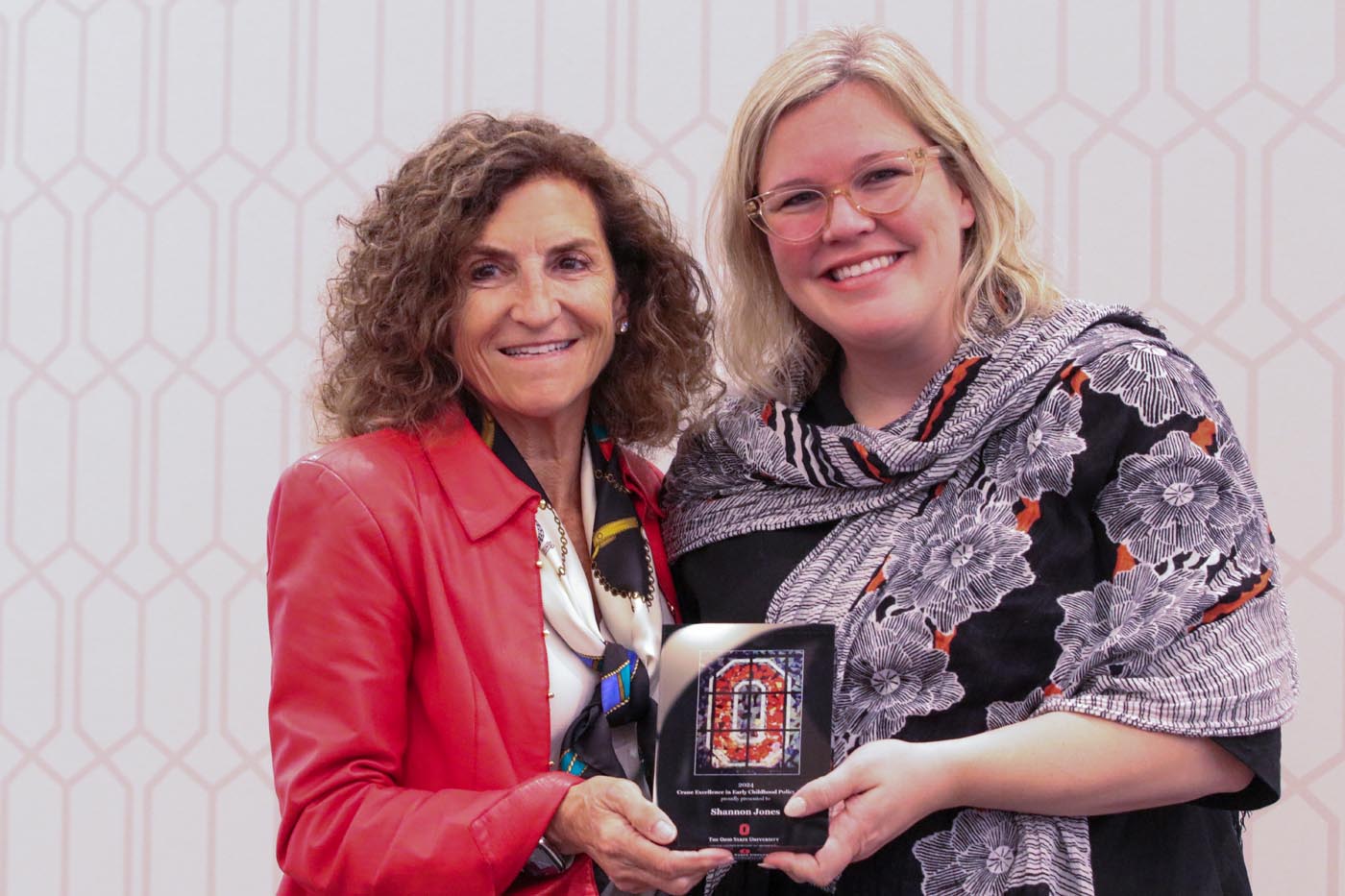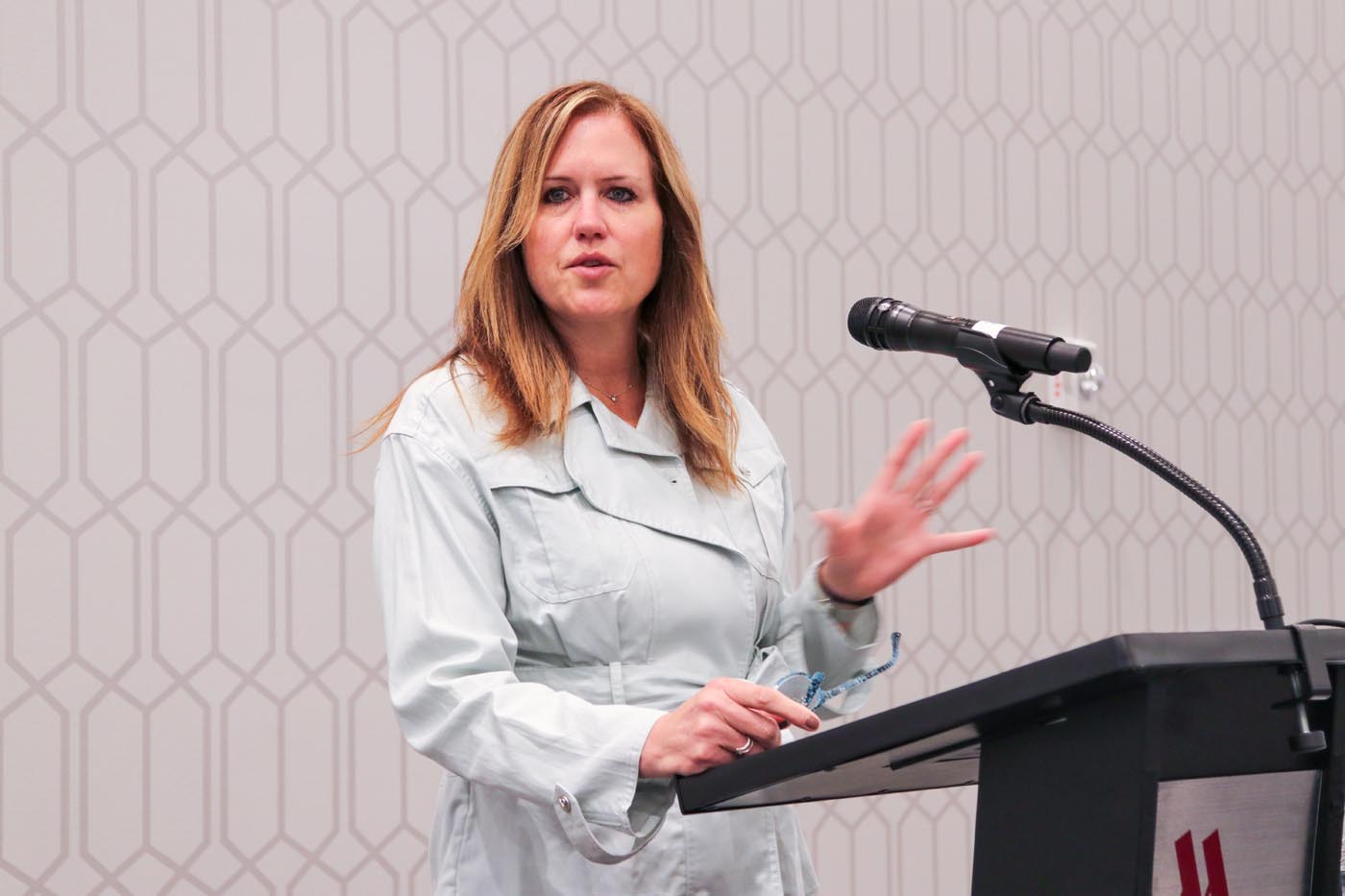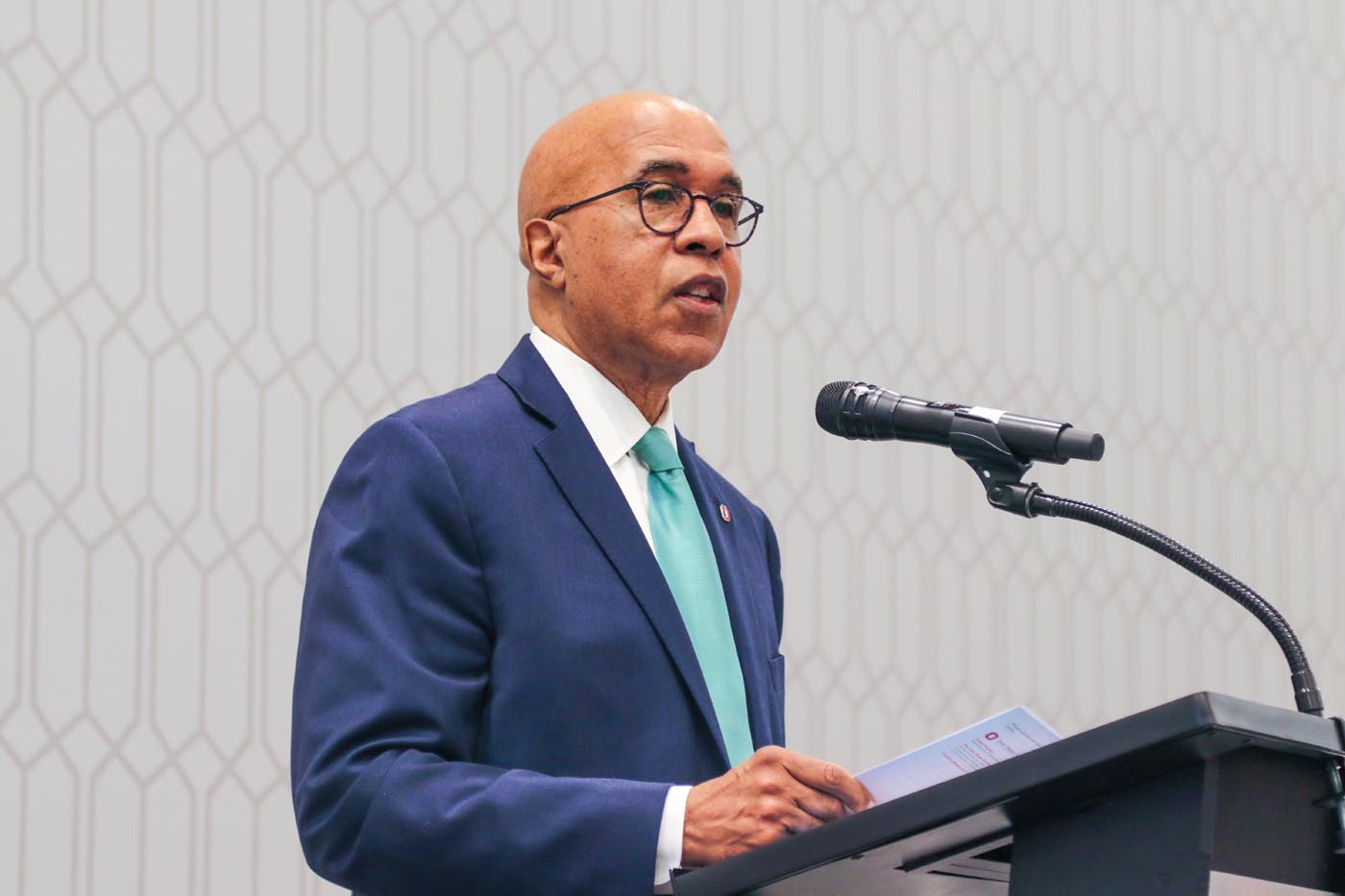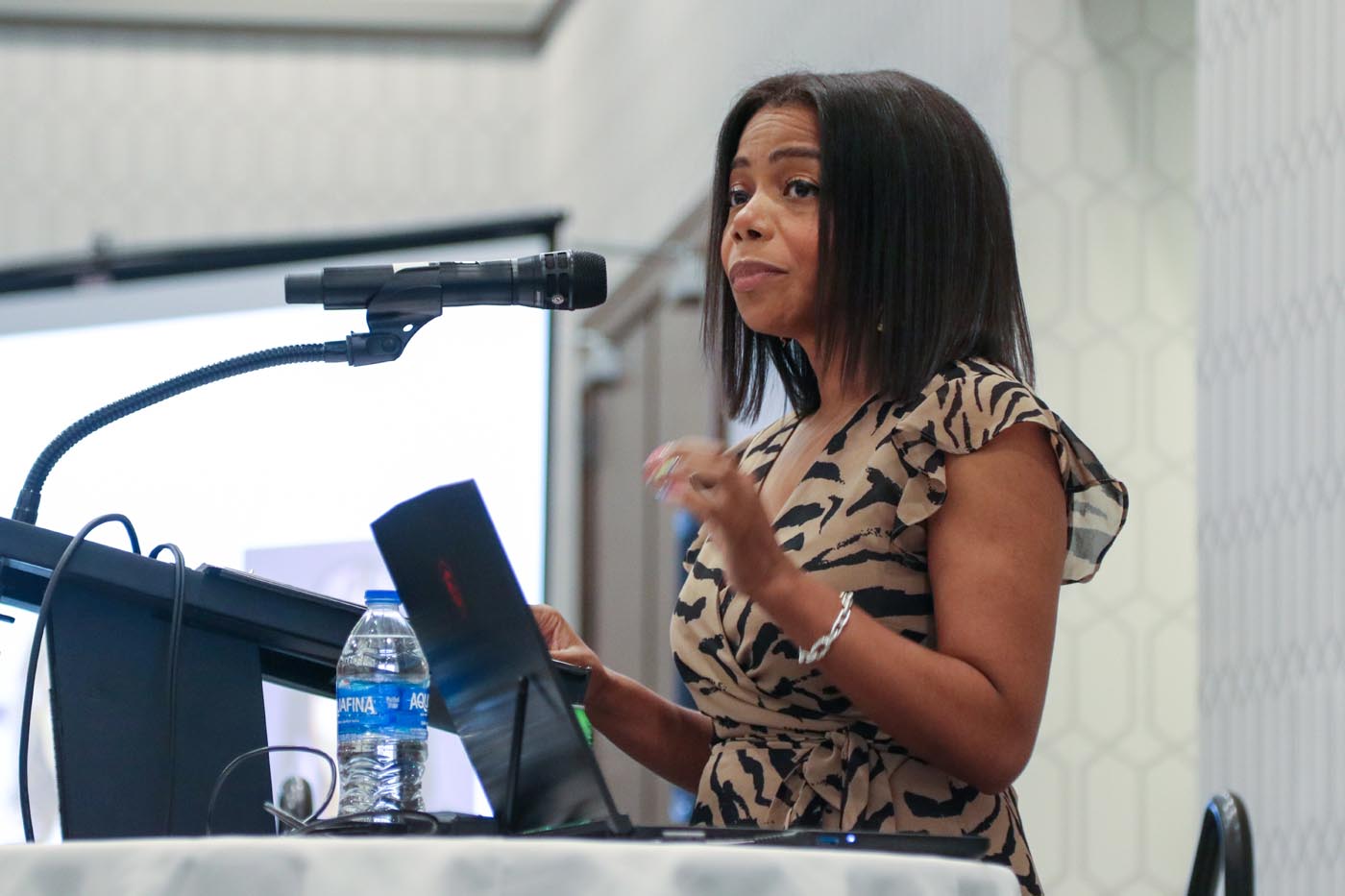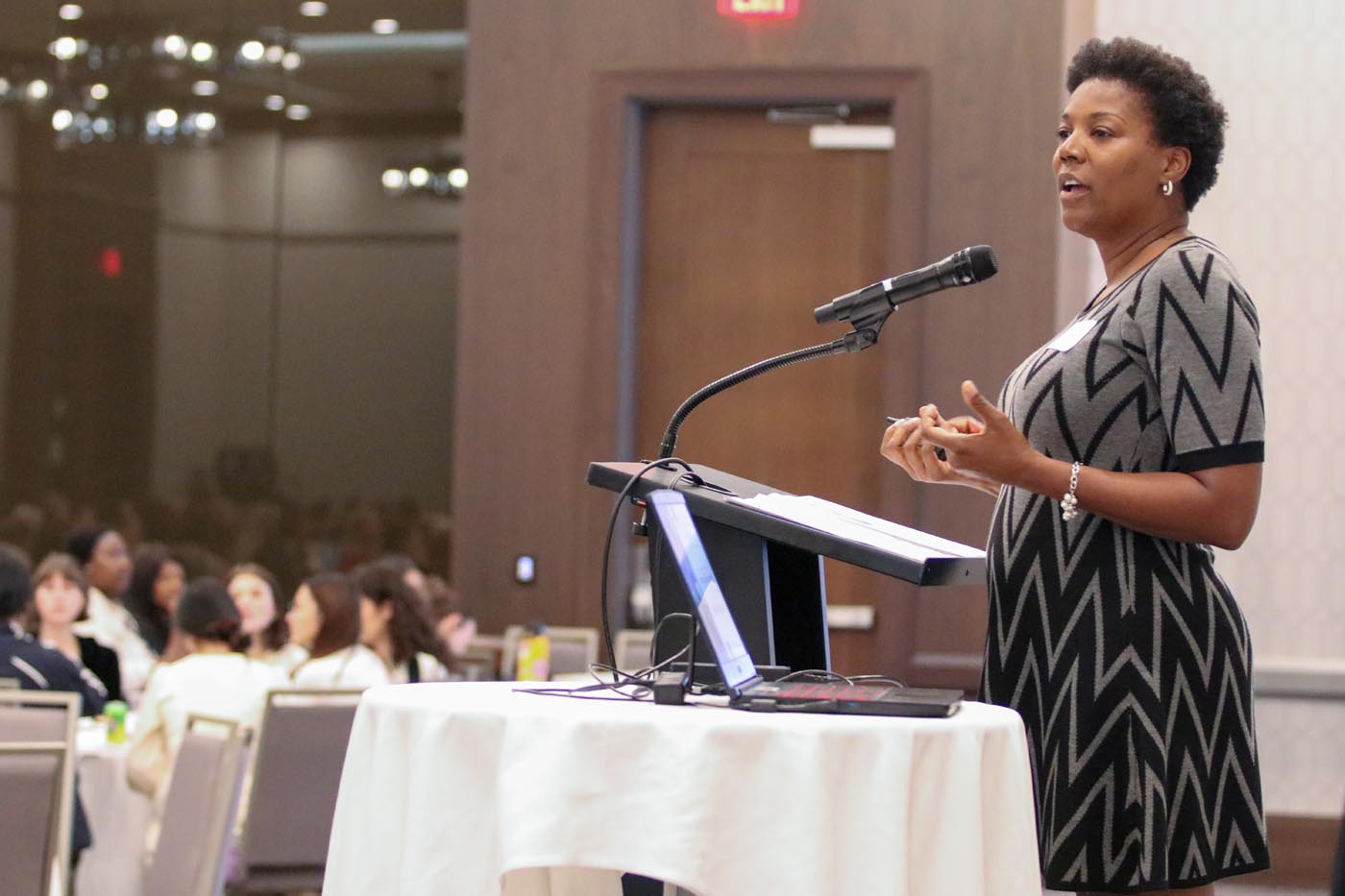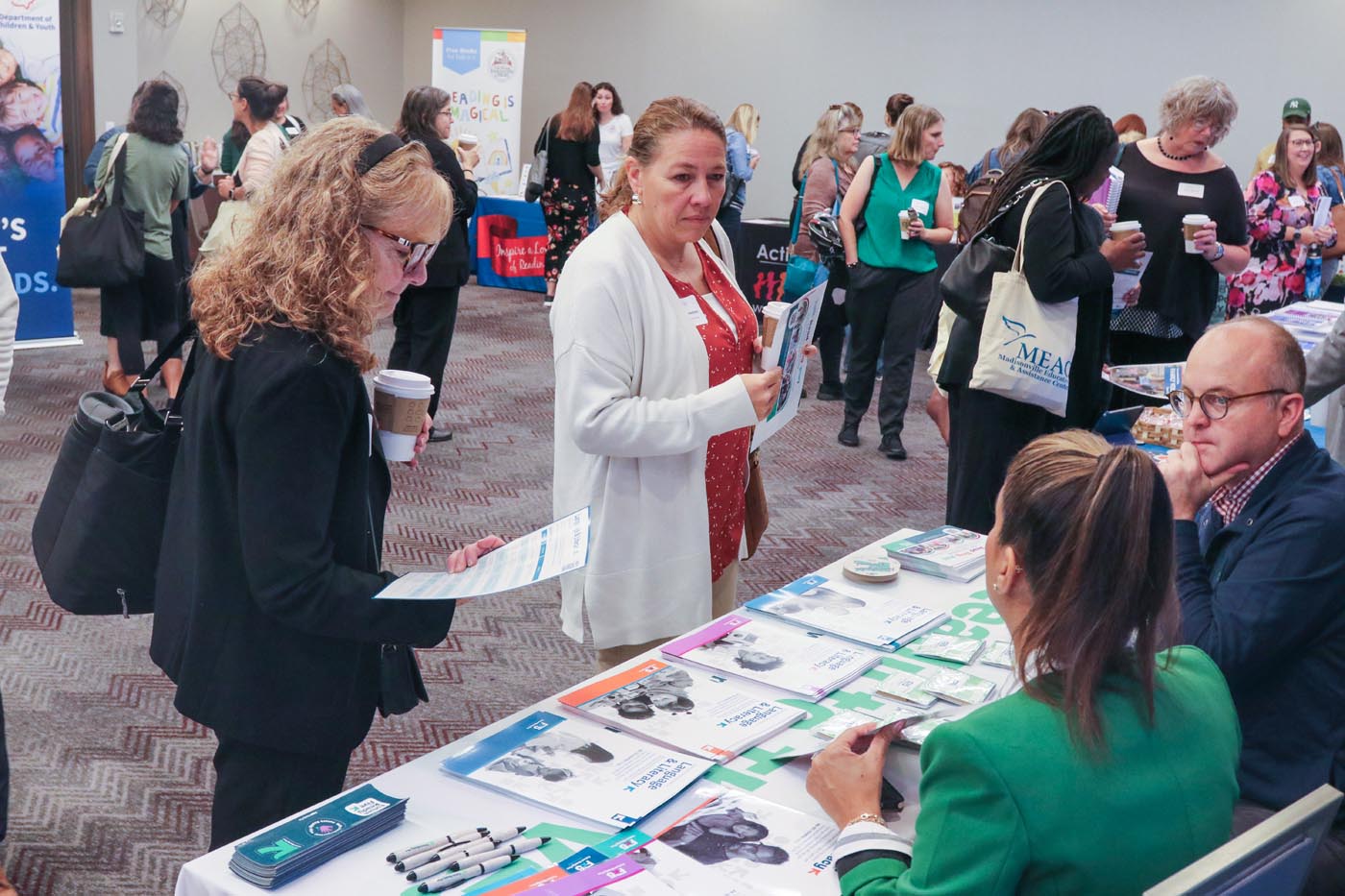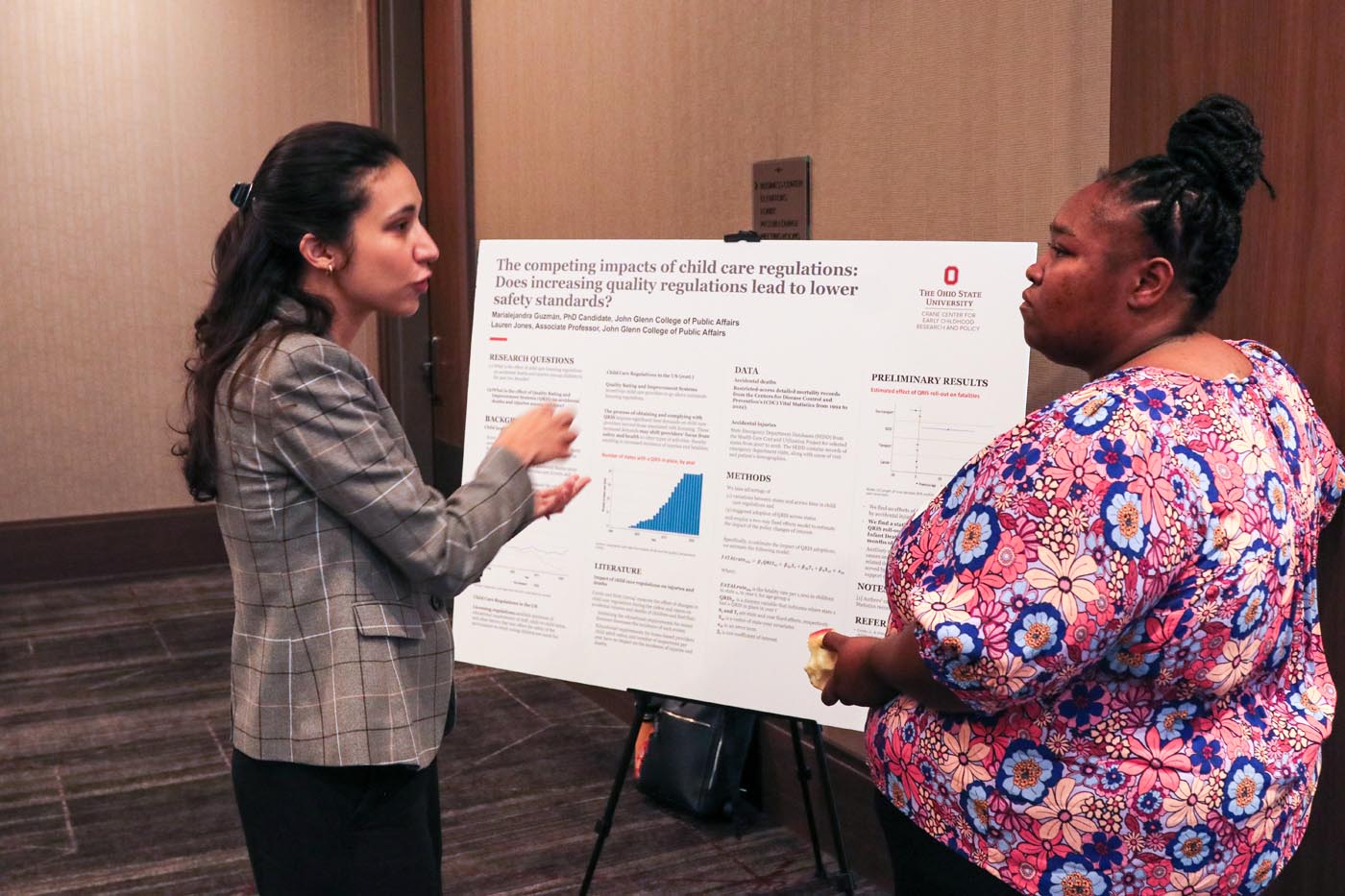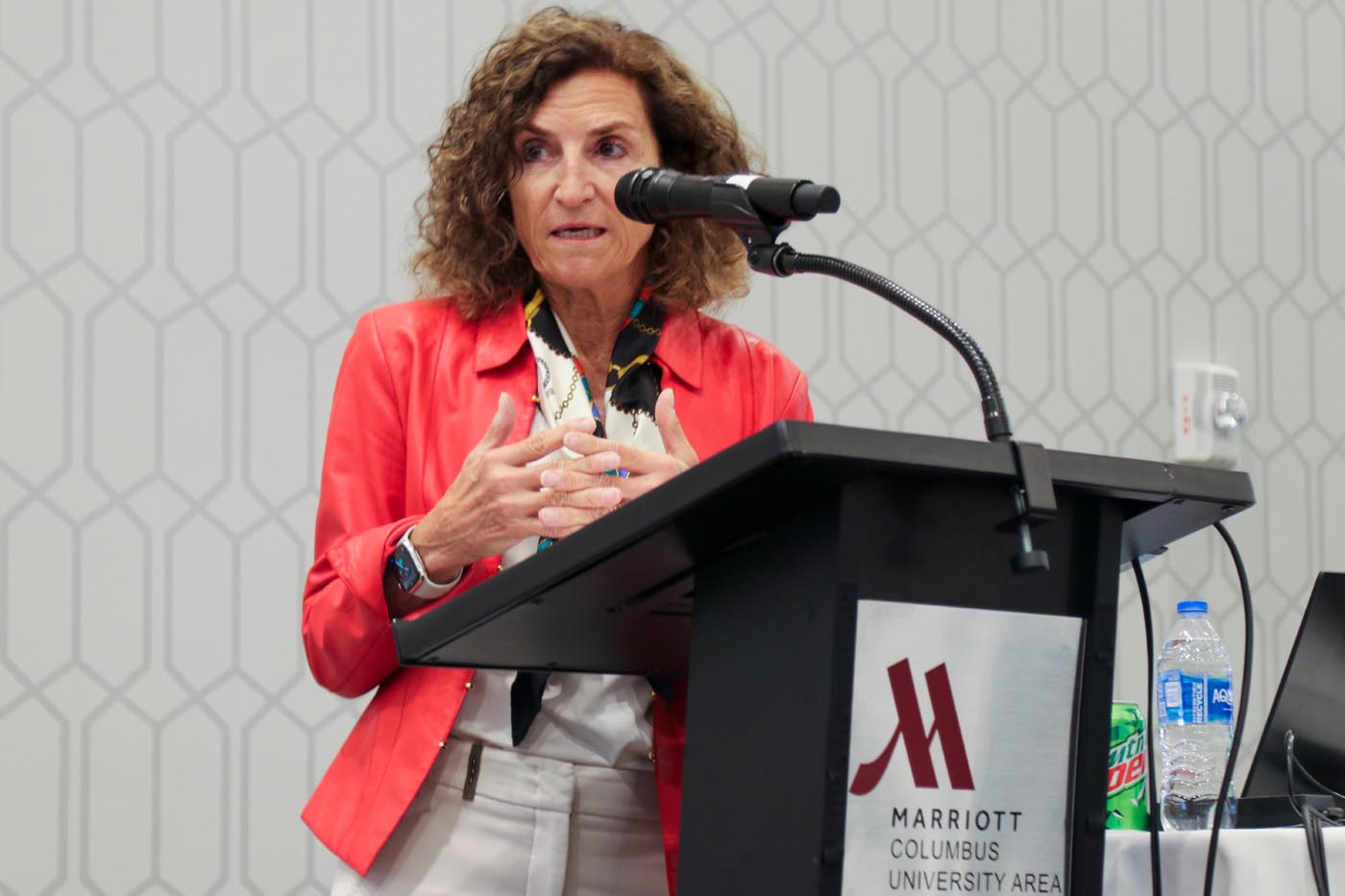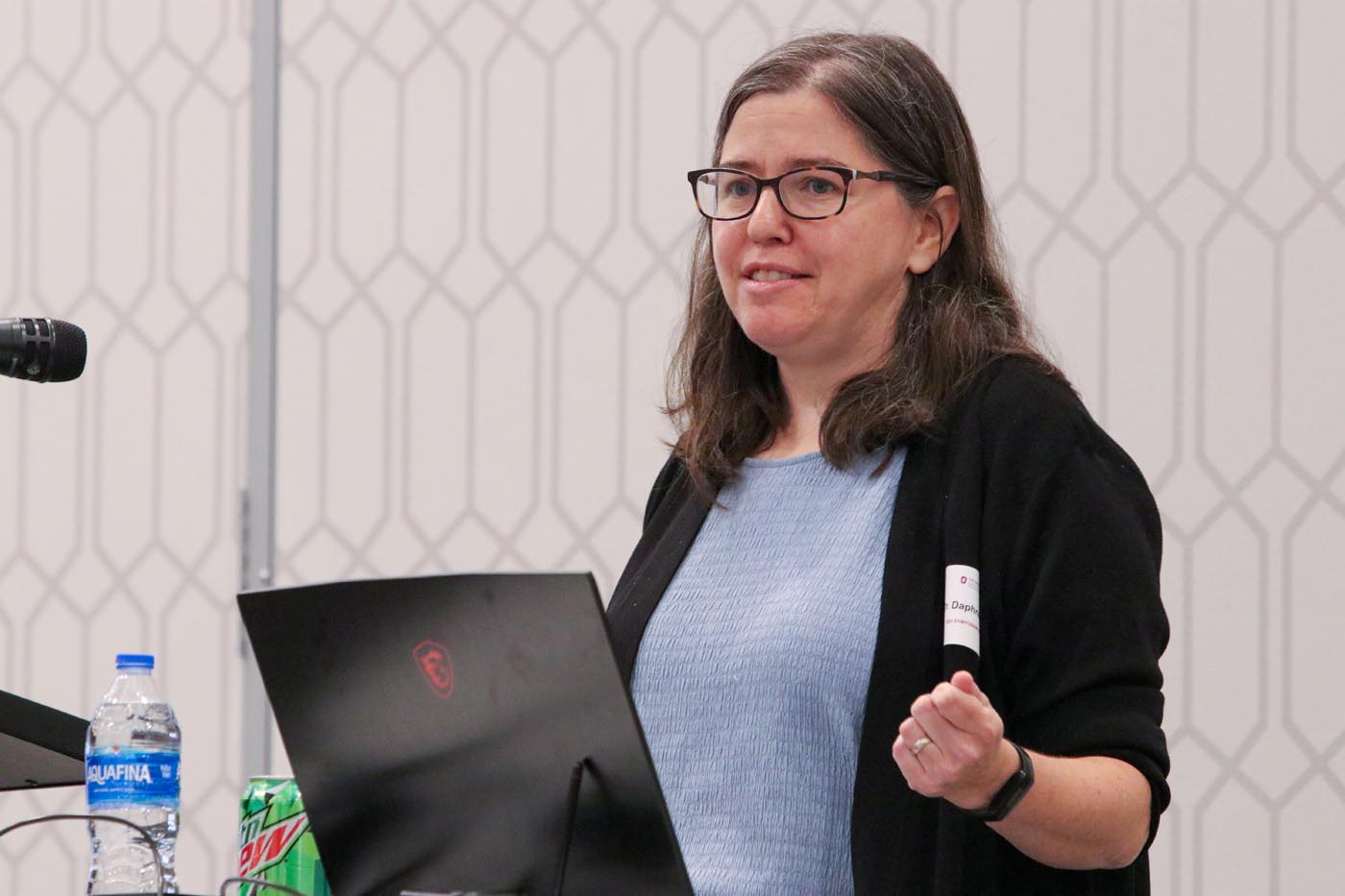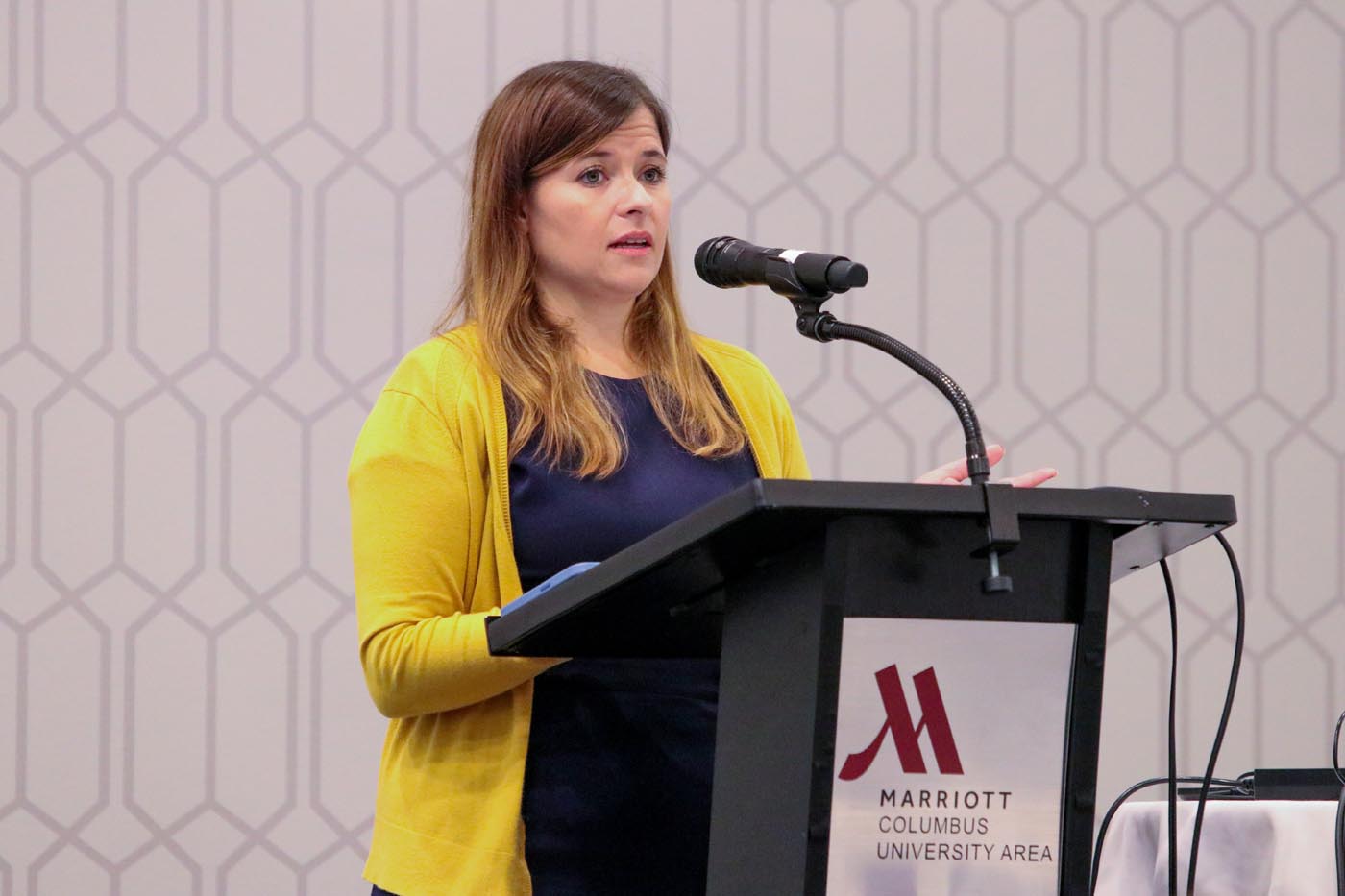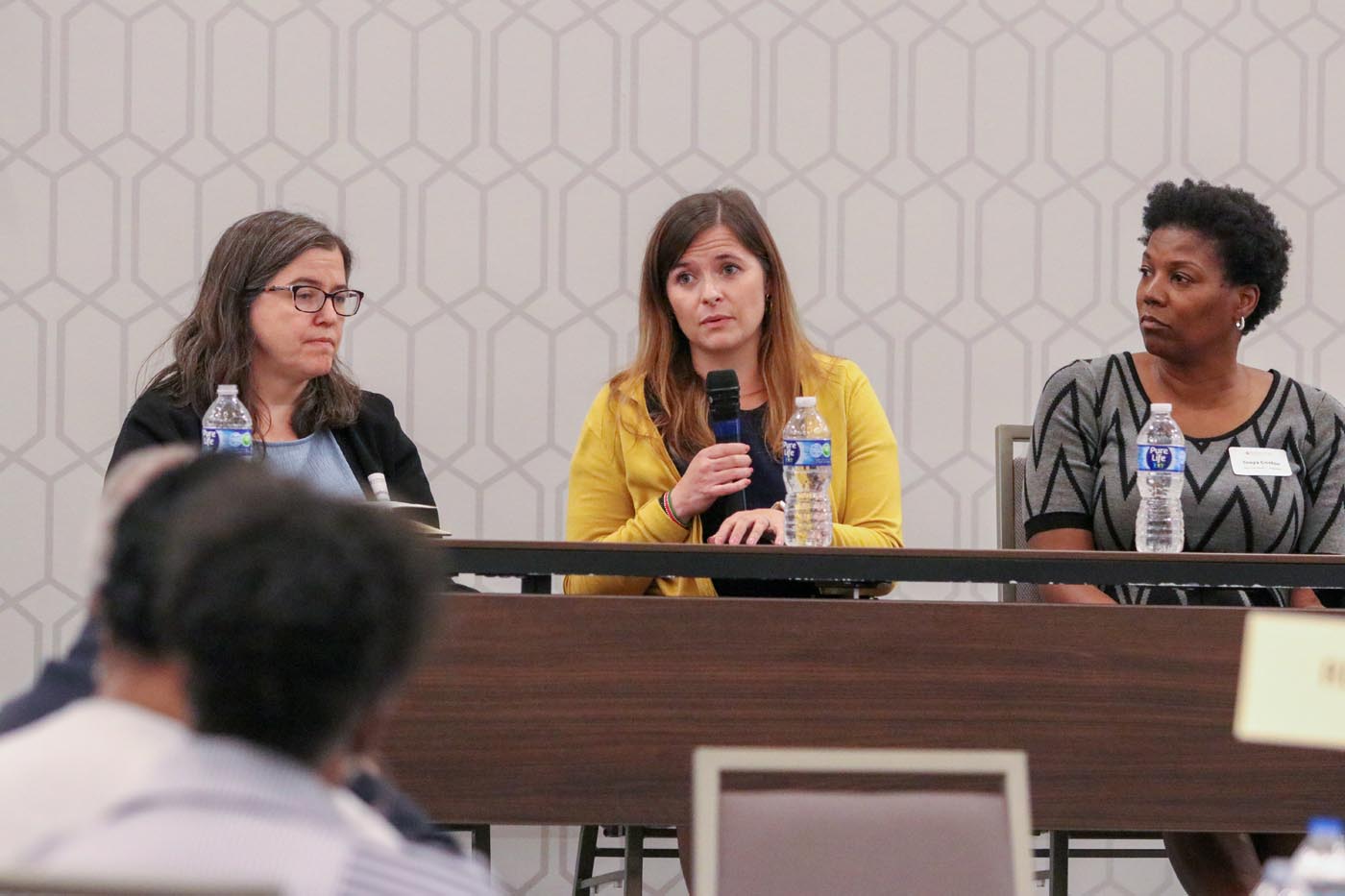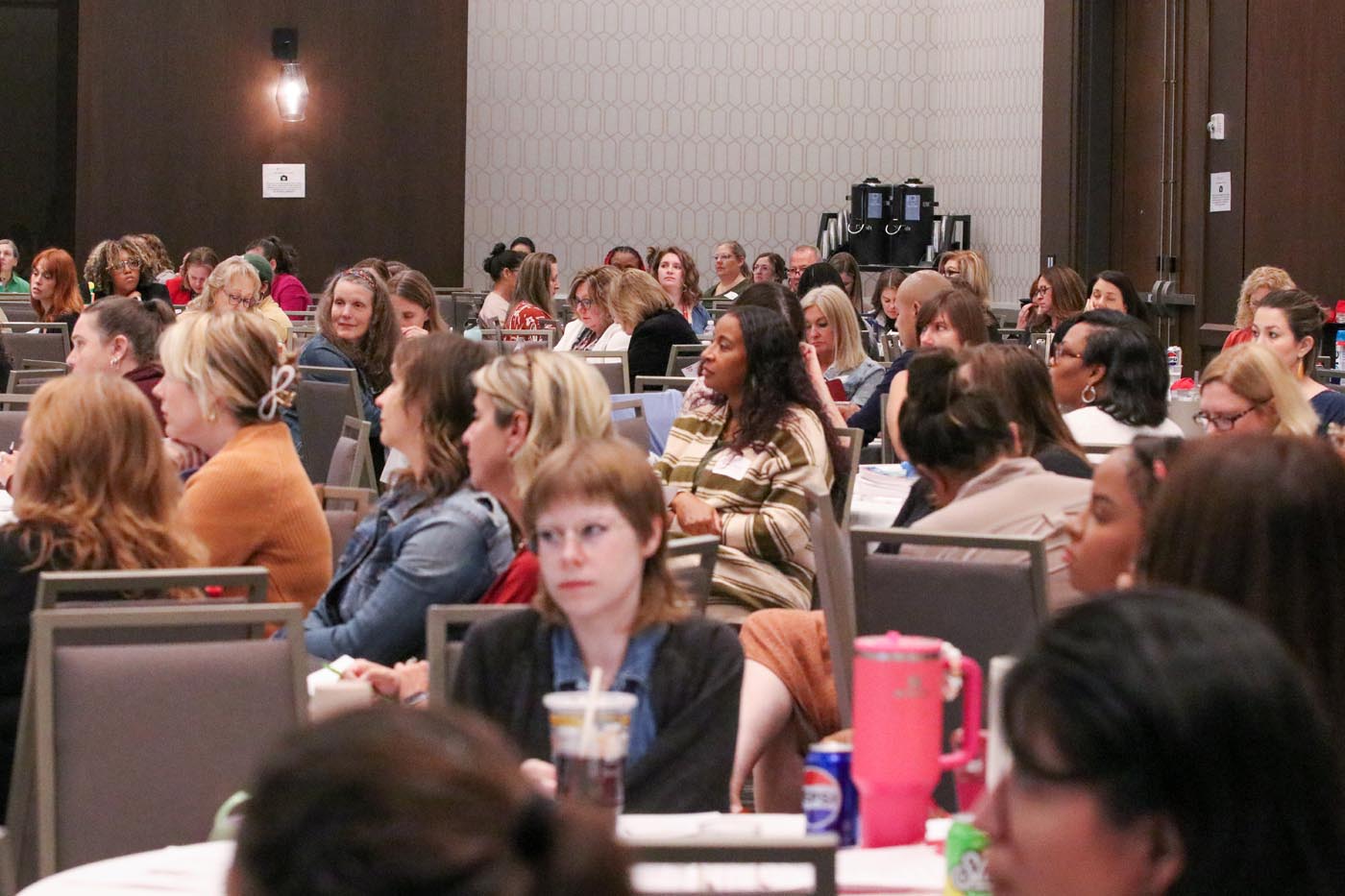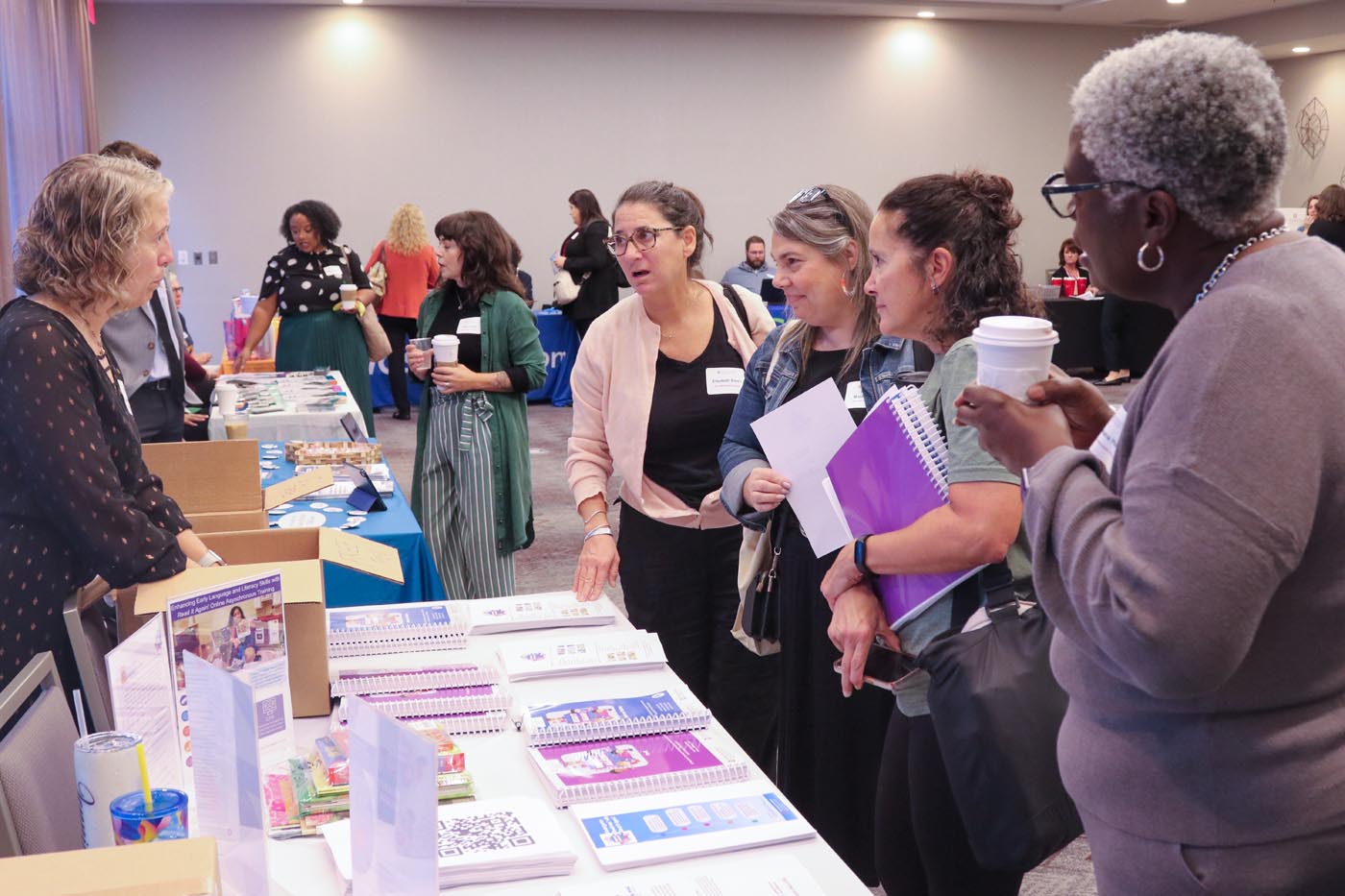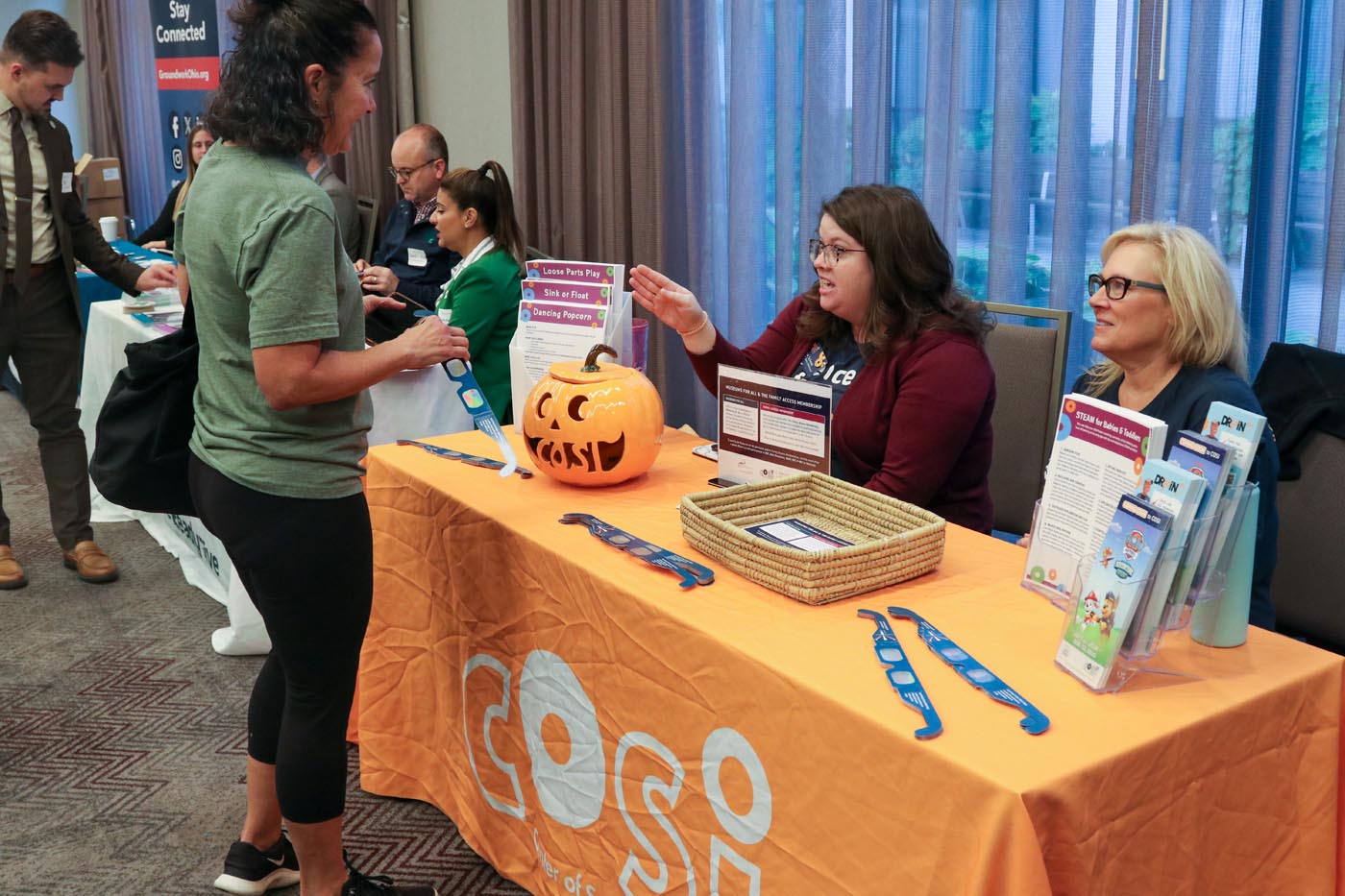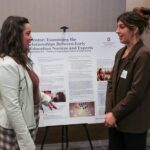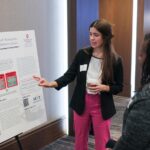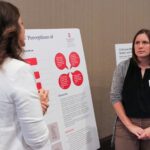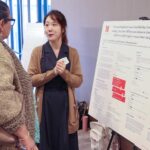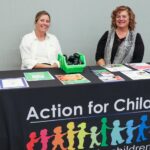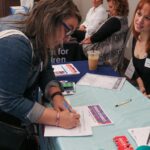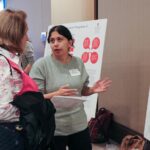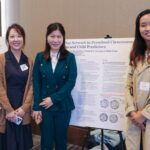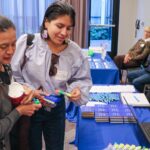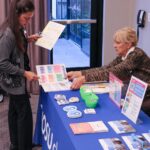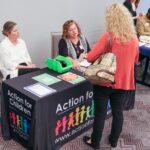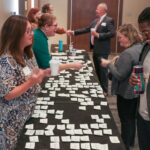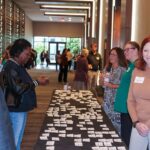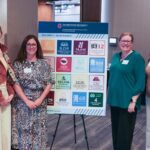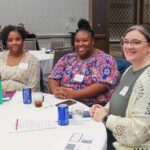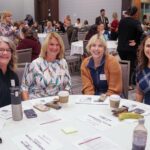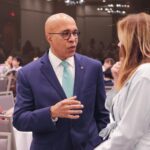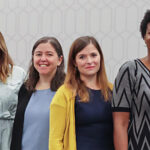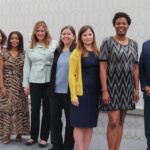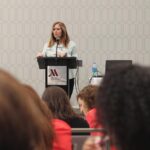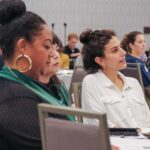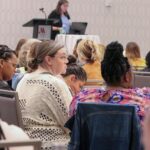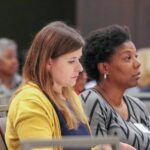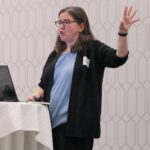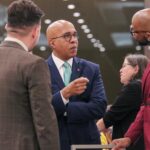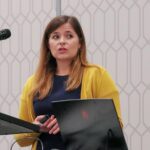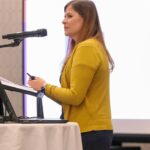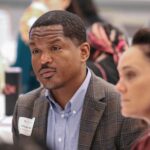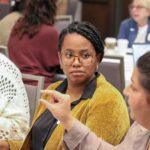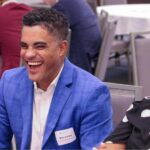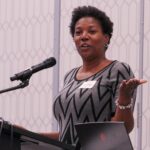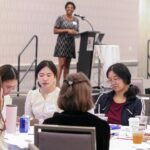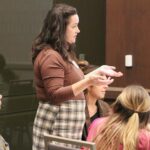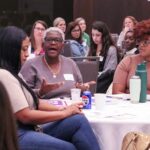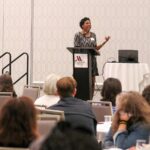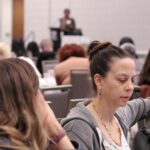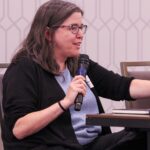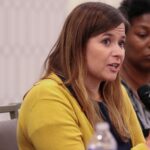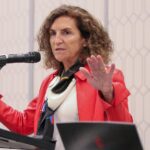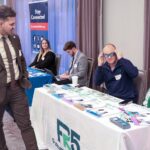RECAP: 2024 Symposium on Children

Strengthening the Early Childhood Workforce
Crane’s 11th annual Symposium on Children welcomed 285 professionals from early childhood research, practice, and policy who gathered to examine ways to strengthen and support the early care and education workforce. Attendees heard from Ohio leaders before taking a deep dive into research on the current state of the early childhood workforce. They also heard success stories from states innovating ways to strengthen and support these teachers. Crane executive director Dr. Laura Justice also moderated a discussion with all three speakers on translating these learnings into context for Ohio. Attendees also had an opportunity to hear more from researchers presenting posters and exhibitors who shared community resources for supporting the workforce. The day ended with the second annual Crane Excellence in Early Childhood Awards.
Crane executive director Dr. Laura Justice welcomed attendees and shared Crane’s latest work that aims to strengthen and support early educators through federally funded research projects, expansion of the Early Head Start program, and newly developed curriculum supplements that support best practices for teachers. Dean Donald Pope-Davis discussed how the centers within the College of Education and Human Ecology translate research into actionable impact for early educators and families. Next, CEO Tanny Crane spoke about the statistics on current workforce participation among parents with young children and highlighted the urgency around strengthening these supports before Franklin County Commissioner Erica Crawley shared about local initiatives like the RISE Scholarship, aimed at strengthening retention and early educator pipelines.
Keynote Dr. Daphna Bassok, from EdPolicyWorks and the University of Virginia, then took the stage to share the latest research findings on the state of the early care and education workforce, drawing key comparisons with teachers in the K-12 system across key areas such as pay, teacher:child ratios, turnover, and the outsized impact of turnover on children’s development in the early years. Dr. Bassok also highlighted the critical need to have accurate data, and shared results from a research-policy partnership which tracked the success of implementing specific supports and its impact to teachers and children.
Dr. Kathryn Kigera from the D.C. Division of Early Learning shared the innovative approach being taken to create pay equity for early educators in the district as well as efforts to improve benefit offerings to all providers in licensed home- or center-based settings. The presentation shared new research findings on initial results of these investments which showed that early educators were better able to meet their basic needs and that their view on remaining in the field positively improved.
Tonya Coston from the New Jersey Department of Labor & Workforce Development outlined how the state created a cross-agency collaboration focused on strengthening early childhood. The session looked at how a unified vision and strategic leadership helped to mobilize funding to meet these goals and to build more comprehensive support systems. Ms. Coston also shared the state’s plans to explore an apprenticeship program for developing future early educator pipelines.
RESOURCES
Slides
- Opening remarks
- Highlights of Crane’s recent work strengthening the early care and education workforce
- Keynote with Dr. Bassok
- Elevating Early Educators: Innovative Policies and Practices to Support Children, Families, and the Early Childhood Workforce
- Session 1 with Dr. Kigera
- Sustainable Approaches to Strengthening the Early Learning Workforce
- Session 2 with Ms. Coston
- Strengthening Early Care and Education Through State Government Collaboration
References and Resources
Crane Excellence in Early Childhood Awards
The Crane Center was pleased to end the day with the second annual awards which recognized and celebrated this year’s honorees and were presented by Tanny Crane to Melissa Anderson-Johnson, Dr. Mary Wagner, and Shannon Jones. We were able to interview the winners and share more about their backgrounds and work. Each one has an incredible career and, in answering our interview questions, offered great insights from their unique vantage point. We wanted to highlight a few snippets here but also encourage you to check out their full interviews.
PRACTICE AWARD
Melissa Anderson-Johnson, center manager at Starting Point Learning Center and founder of Family, Adolescent, and Child Community Engagement Services (FACCES), was recognized for her dedication to children and families and leadership in providing high-quality care in an area with high demand and for starting a nonprofit which offers wellness and economic stability supports for the entire community.
A growing concern in early childhood education is the prevalence of silos… It is crucial for the sector to consolidate actions, establish best practices, and empower educators and families to foster children’s development by fostering a culture of transparency and collaboration…
RESEARCH AWARD
Dr. Mary Wagner, associate professor of Psychology at the University of Dayton, was recognized for research that is expanding understanding of children’s early math development, including identifying a unique skill set that may underlie many children’s challenges in math skill development.
Historically, much of what we ‘know’ or ‘think we know’ about child development is based on university laboratory studies of mostly white, high-income families, which is a critical problem as these findings are not representative of our population as a whole and of the diverse environments in which children develop.
POLICY AWARD
Shannon Jones, senior advisor to Groundwork Ohio and former state representative and state senator, was recognized for her decades of leadership in championing policies that improve early learning and healthy development for Ohio’s youngest kids.
It’s astonishing that, despite clear evidence, many leaders prioritize taxpayer funded stadiums for multi-millionaires over proven strategies that lift families out of poverty and prepare children for lifelong success. The gap between what we know and what we do is a persistent and frustrating challenge that underscores the need for continued, determined advocacy.

ADDITIONAL PHOTOS (click to enlarge)


